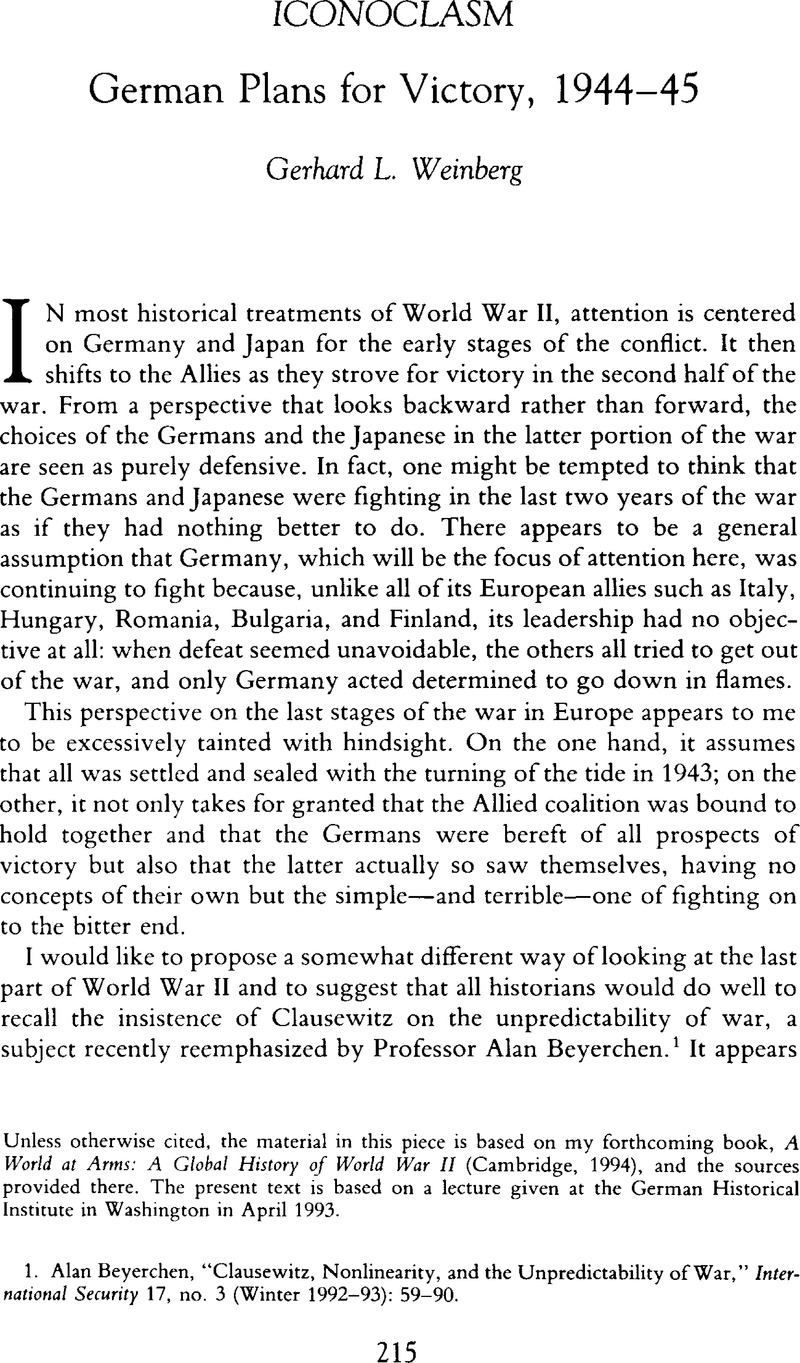No CrossRef data available.
Published online by Cambridge University Press: 16 December 2008

Unless otherwise cited, the material in this piece is based on my forthcoming book, A World at Arms: A Global History of World War II (Cambridge, 1994)Google Scholar, and the sources provided there. The present text is based on a lecture given at the German Historical Institute in Washington in April 1993.
1. Beyerchen, Alan, “Clausewitz, Nonlinearity, and the Unpredictability of War,” International Security 17, no. 3 (Winter 1992–1993): 59–90.CrossRefGoogle Scholar
2. The best account remains Wilt, Alan F., The Atlantic Wall: Hitler's Defenses in the West, 1941–1944 (Ames, Iowa, 1975).Google Scholar
3. This process can be traced in volumes 13–15 of Boberach, Heinz, ed., Meldungen aus dem Reich: Die geheimen Lageberichte des Sicherheitsdienstes der SS 1938–1945 (Herrsching, 1984).Google Scholar
4. von Klemperer, Klemens, German Resistance against Hitler: The Search for Allies Abroad, 1938–1945 (Oxford, 1992), 378.Google Scholar
5. Hilberg, Raul, The Destruction of the European Jews, rev. ed. (New York, 1985), 707–8Google Scholar. There were evidently men in the unit who doubted that this was the highest priority for the German armed forces in July 1944, and General Kleemann found it expedient to issue an order explicating the need for such actions. German generals were not generally in the habit of explaining themselves to the troops.